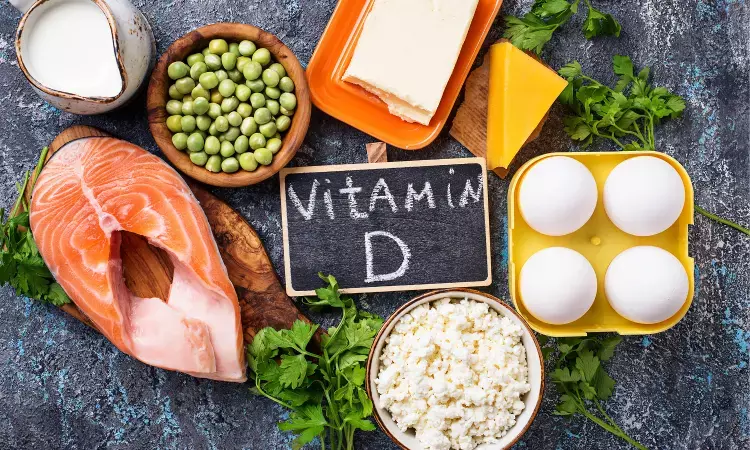- Home
- Medical news & Guidelines
- Anesthesiology
- Cardiology and CTVS
- Critical Care
- Dentistry
- Dermatology
- Diabetes and Endocrinology
- ENT
- Gastroenterology
- Medicine
- Nephrology
- Neurology
- Obstretics-Gynaecology
- Oncology
- Ophthalmology
- Orthopaedics
- Pediatrics-Neonatology
- Psychiatry
- Pulmonology
- Radiology
- Surgery
- Urology
- Laboratory Medicine
- Diet
- Nursing
- Paramedical
- Physiotherapy
- Health news
- Fact Check
- Bone Health Fact Check
- Brain Health Fact Check
- Cancer Related Fact Check
- Child Care Fact Check
- Dental and oral health fact check
- Diabetes and metabolic health fact check
- Diet and Nutrition Fact Check
- Eye and ENT Care Fact Check
- Fitness fact check
- Gut health fact check
- Heart health fact check
- Kidney health fact check
- Medical education fact check
- Men's health fact check
- Respiratory fact check
- Skin and hair care fact check
- Vaccine and Immunization fact check
- Women's health fact check
- AYUSH
- State News
- Andaman and Nicobar Islands
- Andhra Pradesh
- Arunachal Pradesh
- Assam
- Bihar
- Chandigarh
- Chattisgarh
- Dadra and Nagar Haveli
- Daman and Diu
- Delhi
- Goa
- Gujarat
- Haryana
- Himachal Pradesh
- Jammu & Kashmir
- Jharkhand
- Karnataka
- Kerala
- Ladakh
- Lakshadweep
- Madhya Pradesh
- Maharashtra
- Manipur
- Meghalaya
- Mizoram
- Nagaland
- Odisha
- Puducherry
- Punjab
- Rajasthan
- Sikkim
- Tamil Nadu
- Telangana
- Tripura
- Uttar Pradesh
- Uttrakhand
- West Bengal
- Medical Education
- Industry
Vitamin D fortification works better in water or milk than in juice

According to a new study that will be presented today (Saturday 21 May at 12:00 noon CEST) at the 24th European Congress of Endocrinology in Milan, Italy on vitamin D food fortification working better with water and milk than in juice. By measuring the maximum concentration over time, the researchers found bioavailability of vitamin D to be higher in milk and water.
Vitamin D insufficiency is a global health problem Vitamin D insufficiency has been linked with multiple health issues, including the immune response to COVID- 191. Estimates show that as much as 40% of the European population could be suffering from vitamin D deficiencies, with 13% potentially suffering from severe vitamin D deficiency2. Vitamin D supplements are therefore vital-and knowing whether they will be absorbed and how best to aid absorption is crucial.
To answer this question, Dr. Rasmus Espersen of Aarhus University in Denmark and his colleagues conducted a randomised trial on 30 postmenopausal women aged 60-80 with vitamin D deficiency. The study aimed to measure immediate changes in blood concentrations in response to the consumption of various food items containing 200 g D3. In a random order, 500 mL of water, milk, juice, juice with vitamin D bound to whey protein isolate as well as 500 mL of water without vitamin D (placebo) were presented to the study participants.
Blood samples were collected at 0h, 2h, 4h, 6h, 8h, 10h, 12h, and 24h on each study day. "One aspect that surprised me was the fact that the results seen in the water and milk groups were equal. This was quite unexpected given the fact that milk contains more fat than water." stated Dr. Espersen. The study revealed that whey protein isolate in apple juice did not enhance maximum concentration of D3 compared to juice without WPI. However, compared to juice, D3 concentrations were significantly higher in response to intake of milk and water.
No difference was observed between milk and water. Therefore, the conclusion from this study is that vitamin D fortification works better in water or milk than in juice. 1 Bilezikian et al., (2020), MECHANISMS IN ENDOCRINOLOGY: Vitamin D and COVID-19, European Journal of Endocrinology, Volume 183:5, https://doi.org/10.1530/EJE-20-0665 2 Amrein et al., (2020), Vitamin D deficiency 2.0: an update on the current status worldwide, European Journal ofClinical Nutrition, Volume 74, pp 1498-1513, https://www.nature.com/articles/s41430-020-0558-y#Sec23
European Society of Endocrinology Starling House, 1600 Bristol Parkway North, Bristol, BS34 8YU, UK Tel +44 1454 642247 info@euro-endo.orgwww.ese-hormones.org President Martin Reincke Munich, Germany. President-elect Jérôme Bertherat Paris, France. Secretary Mónica Marazuela Madrid, Spain. Treasurer Djuro Macut Belgrade, Serbia.
Executive Committee members: Philippe Chanson Paris, France. Mirjam Christ-Crain Basel, Switzerland. Martin Fassnacht Würzburg, Germany. Simona Glasberg Jerusalem, Israel. Riccarda Granata Torino, Italy. Robin Peeters Rotterdam, The Netherlands. Ex-Officio members: EYES Representative Eva Coopmans, Rotterdam, Netherlands. Nurse Representative Sherwin Criseno West Bromwich, UK. ECAS Representative Anton Luger Vienna, Austria.
Registered in England and Wales No. 5540866. Registered Office: Redwood House, Brotherswood Court, Great Park Road, Almondsbury Business Park, Bradley Stoke, Bristol, BS32 4QW, UK. Company Limited by Guarantee. Registered Charity No. 1123492.
Dr Kamal Kant Kohli-MBBS, DTCD- a chest specialist with more than 30 years of practice and a flair for writing clinical articles, Dr Kamal Kant Kohli joined Medical Dialogues as a Chief Editor of Medical News. Besides writing articles, as an editor, he proofreads and verifies all the medical content published on Medical Dialogues including those coming from journals, studies,medical conferences,guidelines etc. Email: drkohli@medicaldialogues.in. Contact no. 011-43720751


